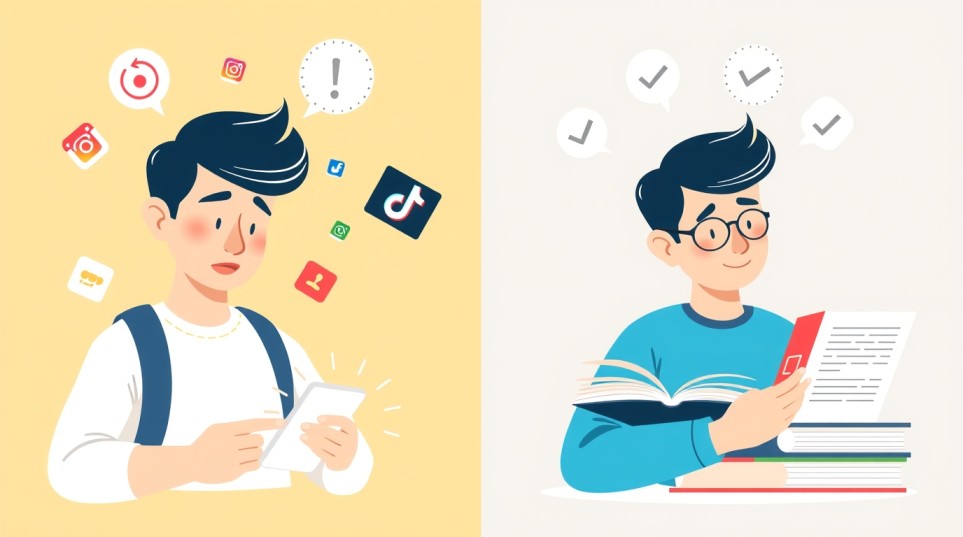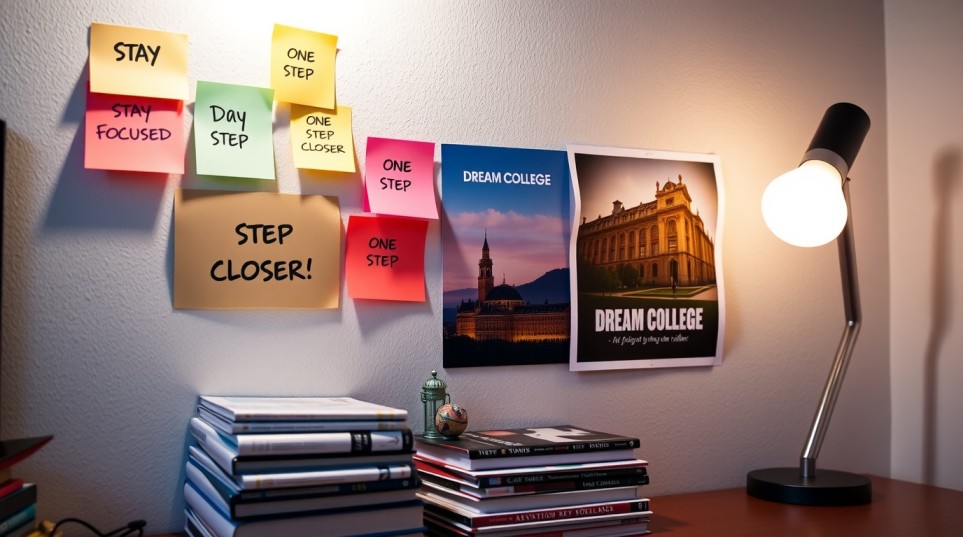Let’s be honest. We’ve all been there. You sit down with the best intentions — books open, highlighter ready — and then buzz. One notification. You think, “I’ll just check this quickly.” Suddenly, it’s 45 minutes later and you’re deep into TikTok or Instagram, wondering where the time went.
It’s not that you don’t care about your studies. It’s just that your phone is a professional-level distraction machine. The good news? You don’t have to give it up completely. You just need a plan to keep it from running the show while you’re trying to learn.
Why Phones Hook Us So Easily
Your phone isn’t just a tool. It’s designed to keep you looking at it. Social media apps, games, even basic notifications are built to trigger little dopamine hits in your brain. That’s why it feels so hard to ignore a “ping.”
So, if you’ve been blaming yourself for being “lazy” or “undisciplined,” stop. You’re up against technology that’s engineered to distract you. The trick is learning how to take control back.
1. Create a Study Zone That Says “Focus Only”
Where you study matters a lot more than most people realize.
- Put your phone somewhere else — another room, a drawer, even your backpack across the room.
- Use Do Not Disturb or airplane mode. Silence helps more than you think.
- Keep your desk clear. A cluttered space is basically an invitation to procrastinate.
When your environment is clean and phone-free, your brain starts to settle into study mode faster.
2. Use Your Phone Against Itself
Here’s a twist: you don’t always need to ban your phone. Sometimes it can help.
- Try apps like Forest or Freedom to block the bad stuff.
- Use a Pomodoro timer: 25 minutes of focus, 5 minutes of rest.
- Play calming background sounds or instrumental music.
The idea is simple — if you can’t get rid of the distraction, turn it into a tool.

3. Make Studying a Ritual
Brains love patterns. If you build a routine, focus becomes automatic.
It could be as simple as:
- Brewing the same tea before you start.
- Lighting a candle.
- Sitting at the same desk, same chair, same playlist every time.
After a while, those little cues train your brain: “Okay, this is study time.”
4. Don’t Quit Cold Turkey — Ease In
If you’re glued to your phone, cutting it off completely can feel unbearable. It’s like deciding to run a marathon without any training.
Instead, ease yourself in:
- Hide apps in folders so they’re harder to open.
- Use screen time limits.
- Temporarily delete your most distracting apps during exam weeks.
Think of it like building a muscle. Start light, then add weight as you go.
5. Keep Your Goals in Sight
Your phone offers instant gratification. Studying doesn’t — not in the same way. That’s why it’s important to keep your bigger “why” visible.
- Write your goal on a sticky note and stick it to your desk.
- Print out a picture of the college or career you want.
- Remind yourself that every hour of focus gets you closer to it.
It sounds cheesy, but it works. When temptation hits, your goal becomes the anchor.
6. Take Breaks That Actually Refresh You
We all need breaks. But there’s a big difference between a rest and a time sink.
Better breaks include:
- A quick walk around the block.
- Stretching or doing a few push-ups.
- Grabbing a snack or water.
- Listening to music (without opening social media).
These small resets recharge your brain without dragging you into a two-hour scroll fest.
7. Use Accountability to Stay Honest
When you know someone else is watching, you’re less likely to cheat.
- Find a study buddy — even online — and agree to stay focused together.
- Tell your family you’re on “study mode” for the next hour.
- Track your progress in a planner or notebook.
Sometimes, the pressure of knowing someone else is aware of your goals is enough to keep you honest.
8. Reward Yourself the Right Way
Discipline doesn’t have to feel like punishment. Reward yourself for staying focused.
- After an hour of real studying, scroll guilt-free for 10 minutes.
- Watch one funny video (not the whole playlist).
- Treat yourself to your favorite snack.
Rewards train your brain that focus = something good.
Real-Life Example
During my last year in high school, I used to waste hours on my phone while “studying.” What helped me was deleting Instagram for two weeks before finals. At first, it felt like I was missing out. But after a few days, I realized I didn’t even care. I was sleeping better, finishing my revision faster, and — bonus — I actually remembered what I studied.
The point is: small changes can lead to big wins.

FAQs
1. Should I turn my phone off completely while studying? If you don’t need it, yes. Out of sight, out of mind works best.
2. What if I need my phone for research or notes? Use focus apps or blockers so only the useful parts of your phone are available.
3. How long can I realistically focus without checking my phone? Start small — 20 minutes. Then build up to 45 minutes, an hour, or more.
4. Does deleting apps actually help? Yes. Even removing them temporarily breaks the habit loop.
5. Is music good for focus? Instrumental or lo-fi beats are great. Lyrics can be distracting for some people.
6. I get anxious without my phone. What should I do? Start with short phone-free study sessions. The anxiety fades as your brain adjusts.
Final Thoughts
Phones aren’t evil. They’re just powerful. The problem comes when they control you instead of the other way around.
By setting up a study space that signals focus, using your phone as a tool (not a trap), building small rituals, and reminding yourself of your bigger goals, you can reclaim your attention.
It won’t be perfect at first. You’ll slip. That’s normal. But over time, your focus will get sharper, your study sessions more productive, and your stress levels lower.
Remember this: the grade you’re working for, the career you’re building, the life you want — all of that is more valuable than the latest notification. Put your phone aside, open your notes, and give yourself the chance to succeed.







